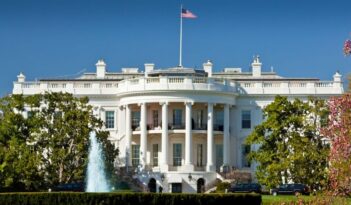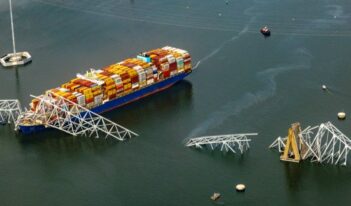
Court concludes EPA reasonably interpreted its regulations governing logging road runoff
When federal agencies impose regulations on businesses, who decides what those rules actually mean? In a recent decision, the Supreme Court said that agencies do.
In Decker v. Northwest Environmental Defense Center, the Court examined whether the Environmental Protection Agency (EPA) reasonably interpreted its regulations when concluding that permits were not required under the Clean Water Act to discharge storm water runoff from logging operations. The Court – ruling that the EPA’s interpretation was reasonable – affirmed the principle that courts should defer to an agency’s interpretation of its own regulation unless that interpretation is plainly erroneous or inconsistent with the regulation.
The dispute in Decker arose following the actions of logging and paper-product companies in Oregon. Under a contract with the state, Georgia-Pacific West and other logging companies harvested timber from a state forest using graded roads to transport the timber. When it rained, water from those roads – often filled with sediment, dirt, and crushed gravel – ran off into nearby rivers and streams.
In September, 2006, the Northwest Environmental Defense Center (NEDC) filed suit in the United States District Court for the District of Oregon, alleging that the logging companies caused discharges of storm water runoff into two waterways and had not obtained the necessary permits to do so under the Clean Water Act.
The District Court dismissed the action, concluding that the discharges were permissible, but the Court of Appeals for the Ninth Circuit reversed.
The Supreme Court granted certiorari to address the question of whether the EPA’s interpretation of its own regulations – that permits are not required for discharges from storm water runoff from logging roads– was reasonable.
The Clean Water Act requires a permit if storm water runoff “associated with industrial activity” is discharged into navigable waters. The EPA, the agency responsible for enforcing the Clean Water Act, issued regulations defining “associated with industrial activity” as only those discharges “directly related to manufacturing, processing or raw materials storage areas at an industrial plant.” The EPA later interpreted storm water runoff from logging roads as excluded from this definition.
In a 7-1 decision, the Court sided with the EPA, concluding that the agency’s interpretation was reasonable and therefore entitled to deference under a previous Supreme Court decision in Auer v. Robbins.
After noting that jurisdictional issues did not preclude the courts from hearing the case, the Court turned to whether the EPA’s interpretation of “associated with industrial activity” was reasonable.
First, relying on the general rule enunciated in Auer that courts should defer to an agency’s interpretation of its own regulation unless that interpretation is “plainly erroneous or inconsistent with the regulation,” the Court concluded that while the term “industrial” can refer to business activity in general, the term also might apply more narrowly to the manufacture of goods in factories, which does not include outdoor timber harvesting.
Second, the Court determined that the EPA’s interpretation that the regulation extends only to traditional industrial activities was rational and therefore permissible.
Finally, the Court concluded that the EPA “could reasonably have concluded that further federal regulation in this area would be duplicative or counterproductive,” given the backdrop of extensive state regulation of storm water runoff from logging roads
Although the Court acknowledged that the EPA’s interpretation might not necessarily the best one, it noted that the interpretation was consistent with the regulation and therefore entitled to deference.
Justice Scalia, disputing the majority’s deferential approach, argued in dissent that the Court should not grant such discretion to federal agencies. He asserted that Auer should be reconsidered because no persuasive justifications exist for affording federal agencies both deference in creating regulations and interpreting them. In its place, Scalia suggested the Court should instead determine whether the agency’s interpretation of the regulations was the most fair.
The Court – refusing to endorse Scalia’s arguments limiting agencies’ interpretive discretion – reversed the Ninth Circuit and remanded the case for proceedings consistent with its opinion.
Justice Stephen Breyer did not take part in the decision because his brother, a judge in the United States District Court for the Northern District of California, sat on the Ninth Circuit panel that had decided the matter under review.



